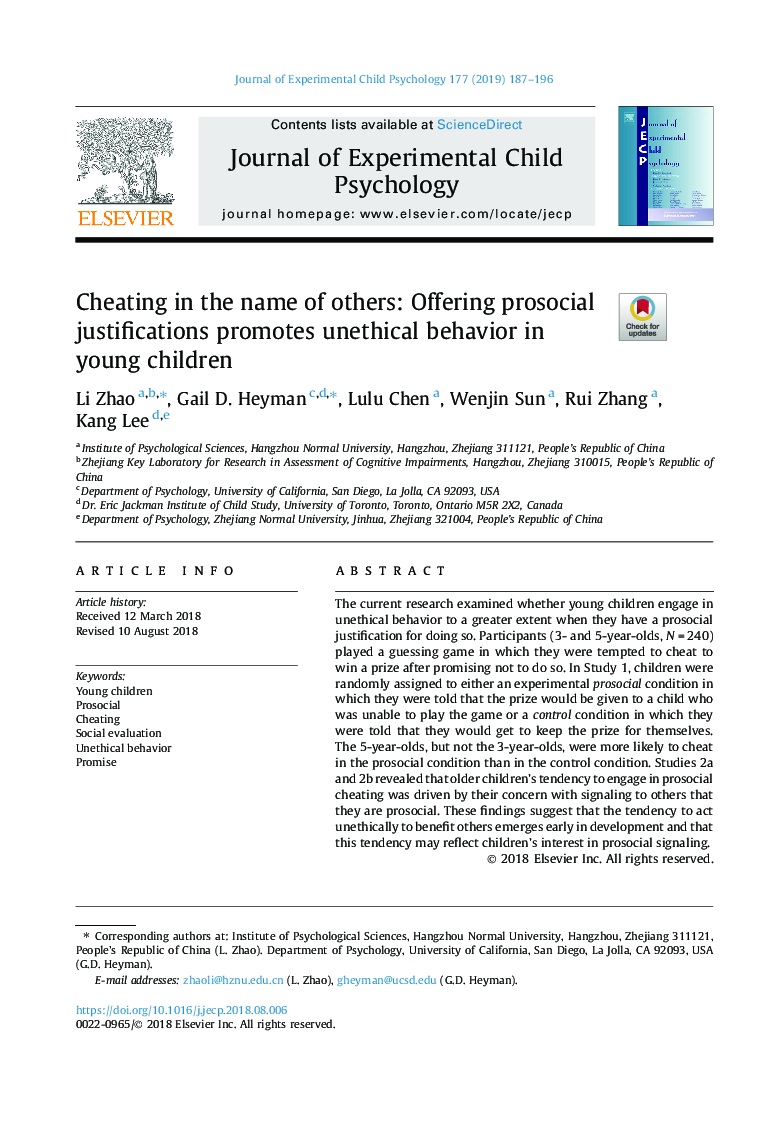| کد مقاله | کد نشریه | سال انتشار | مقاله انگلیسی | نسخه تمام متن |
|---|---|---|---|---|
| 10140344 | 1646010 | 2019 | 10 صفحه PDF | دانلود رایگان |
عنوان انگلیسی مقاله ISI
Cheating in the name of others: Offering prosocial justifications promotes unethical behavior in young children
ترجمه فارسی عنوان
تقلب به نام دیگران: ارائه توجیه های غیرعادی باعث رفتار غیر اخلاقی در کودکان می شود
دانلود مقاله + سفارش ترجمه
دانلود مقاله ISI انگلیسی
رایگان برای ایرانیان
کلمات کلیدی
بچه های جوان، طرفدار تقلب کردن، ارزیابی اجتماعی، رفتار غیر اخلاقی، وعده،
موضوعات مرتبط
علوم انسانی و اجتماعی
روانشناسی
روانشناسی رشد و آموزشی
چکیده انگلیسی
The current research examined whether young children engage in unethical behavior to a greater extent when they have a prosocial justification for doing so. Participants (3- and 5-year-olds, Nâ¯=â¯240) played a guessing game in which they were tempted to cheat to win a prize after promising not to do so. In Study 1, children were randomly assigned to either an experimental prosocial condition in which they were told that the prize would be given to a child who was unable to play the game or a control condition in which they were told that they would get to keep the prize for themselves. The 5-year-olds, but not the 3-year-olds, were more likely to cheat in the prosocial condition than in the control condition. Studies 2a and 2b revealed that older children's tendency to engage in prosocial cheating was driven by their concern with signaling to others that they are prosocial. These findings suggest that the tendency to act unethically to benefit others emerges early in development and that this tendency may reflect children's interest in prosocial signaling.
ناشر
Database: Elsevier - ScienceDirect (ساینس دایرکت)
Journal: Journal of Experimental Child Psychology - Volume 177, January 2019, Pages 187-196
Journal: Journal of Experimental Child Psychology - Volume 177, January 2019, Pages 187-196
نویسندگان
Li Zhao, Gail D. Heyman, Lulu Chen, Wenjin Sun, Rui Zhang, Kang Lee,
